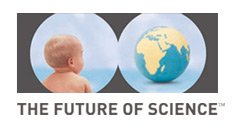Pier Paolo Di Fiore

Paolo Di Fiore is the founder of IFOM, an internationally competitive research centre, where he carries out most of his research. He is also Full Professor of General Pathology at Milan University. He was one of the founders of the European School of Medicine, which provides Ph.D. programs in Molecular Medicine, Medical Nanotechnology and Bioethics. Di Fiore's work is widely recognized, as witnessed by more than 170 published papers. His life is dedicated to the study of cancer, particularly the mechanisms of signal transduction by growth factor receptors in tumours and the role of endocytosis in this process. He has received numerous international awards, he is a member of several international advisory boards, a Senior Editor of the Journal of Cell Biology, and Associate Editor of Cell. He has been member of EMBO since 1998.
Molecular medicine: a possible future?
The molecular understanding of diseases is the key to their treatment. By-and-large every major advancement in Medicine is the result of some application of the concept of Molecular Medicine. One striking example is represented by the discovery of Insulin, by Banting, Macleod and Best. This represented one of the most revolutionary moments in medicine. One year diabetes was an automatic death sentence; the next, people -even children- had hopes of living full and productive lives even with the disease. This is the kind of progress that we would like to see continuously in Medicine, with laboratory discoveries being translated, almost overnight, into real benefits for the patients. Unfortunately, this has remained (and remains) an unfulfilled dream, despite the spectacular progress in our ability to diagnose and manage numerous diseases.
The major difficulty lies in the fact that many diseases (and increasingly so, now that we are able to cure, or to manage effectively, most “molecularly simple” diseases) are the results of complex alterations, both at the genetic and epigenetic level. In addition, each human being is a unique genetic entity: a problem that profoundly impacts on individual predisposition to diseases, response to environmental factors, clinical presentations and response to therapy.
Our major hope today lies in the development of novel approaches to diagnosis, patient stratification and prediction of response to therapy, which stem from the wealth of information and application derived from the so-called “genomic revolution”. In this framework, the prominent challenge is the de-convolution of the genetic mechanisms and networks underlying complex biological phenotypes. When applied to the study of diseases, this approach is meant to reduce pathological traits into their molecular components, which might correspond to disease markers or potential targets for pharmacological intervention. Molecular markers and targets represent the basis to build-up rationale programs of disease prevention, early detection and treatment.
In turn, this is predicted to lead, in a foreseeable future, to the development of Personalized Medicine. Modern medicine is based on the treatment of diseases with methods that are statistically proven to be efficient for the greatest number of patients. Depending on the disease and our understanding of its biology, we may be able to cure 100% of patients. However, we are just as liable to offer only the likelihood of a cure, rather than the certainty of one. We can envision, however, a future of Personalized Medicine, in which each patient receives the treatment that will work best for them, rather than the treatment that works best for most people with that disease. Achieving this will require health services, research institutions and pharmaceutical companies to work together and develop tools for assessing risk of disease, formulating accurate diagnoses, improving prognostic and therapeutic stratification and for developing novel therapeutic approaches. Are we up to the challenge?





